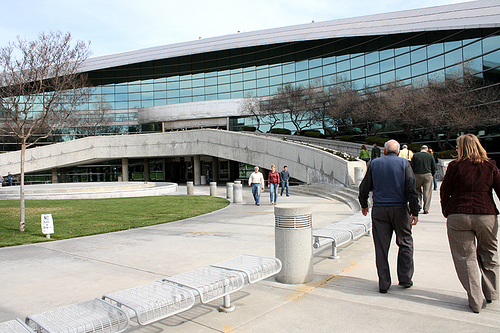“The City (of Fresno) can no longer delay addressing the underlying, structural drivers of its financial problems,” read a newly proposed Fiscal Sustainability Policy released by Fresno Mayor Ashley Swearengin on Monday. “Fundamental, structural change is necessary.”
That simply statement succinctly laid out a fundamental paradigm shift for the City of more than half a million.
The short-term solutions that it has sought during the last few years have not impacted the long-term, deeply rooted fiscal challenges that have jeopardized the future of the Central Valley metropolis. Unlike the Recession itself, which came on quickly, the recovery will be protracted.
“This proposal recognizes the reality that despite the fact that we have made a series of hard decisions over the past three-plus years, we have no choice but to take definitive action to make fundamental, structural changes to our operations if the City is to achieve fiscal sustainability,” Mayor Swearengin said in a statement released along with the proposed policy. “This policy lays the foundation for a 10-year plan to bring the City of Fresno back to fiscal health.”
The proposal outlines several, specific contributing factor’s to the city’s slide towards insolvency.
- Unsustainable Employee Health Costs – The City’s obligation to fund employee health care costs at the current levels is unsustainable.
- Unsustainable Paid Leave Balances – A typical City of Fresno employee is provided paid leave (for use or cash-out) equivalent to 18% to 22% of their total workdays each year.
- Downgrade of the City’s Credit Rating – The overall poor financial health of the City has resulted in significant downgrade in the City’s bond rating by all major bond rating agencies.
- Depletion of Emergency Reserves – The City has depleted its General Fund emergency reserves to dangerously low, and plainly, imprudent levels.
The solution to these challenges, and the financial longevity of the City, depends upon swift and bold action by city leaders, city bargaining units, and city employees.
The city’s efforts to “demonstrate solvency’ in its financial statements depends upon making and continuing deep cuts into employee compensation, benefits, and city services.
“While the city is able to make (formal loans) in the current year, the City’s projections demonstrate a need to further cut expenditures or increase revenues to achieve balance in the future.”
In a letter from November 2011, published with the report, City Manager Mark Scott answers a question he’d been asked repeatedly: Is he sorry to have come to Fresno.
“I am not sorry. I regret that things are so tough and it does wear on me each time employees’ careers and lives are impacted negatively,” Scott wrote. “I am proud to have joined a team of people ho have worked through two or three years of challenges and never lost sight of our collective mission.”
Scott continued to say that trying to find a positive spin to his message would be grasping at straws.
The Mayor has transformed that message into the new sustainability policy that will likely be unpopular with employees.
Mayor Swearengin is asking Scott to convene more “meet and confer” sessions with the city’s bargaining units to address the costs associated with all manner of employee compensation challenges.
The Fiscal Sustainability Policy outlined why employee compensation must be addressed:
“While the solution to Fresno’s financial situation involves more than just personnel costs, employee compensation levels remain the largest component of the City General Fund budget (80%) and offer the only viable path to fiscal stability.”
Effective immediately, the city is seeking a 5% across-the-board cut in compensation for employees and a new funding formula for health care benefits that splits the cost 70/30, instead of the current 80/20.
It is hoped that those cuts can save $1.7 million this year and $7 million next year.





